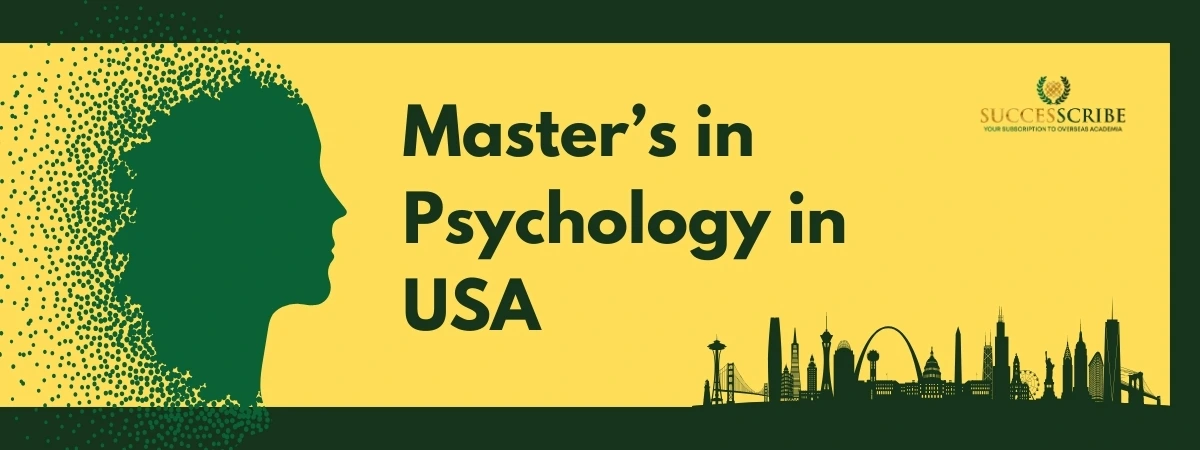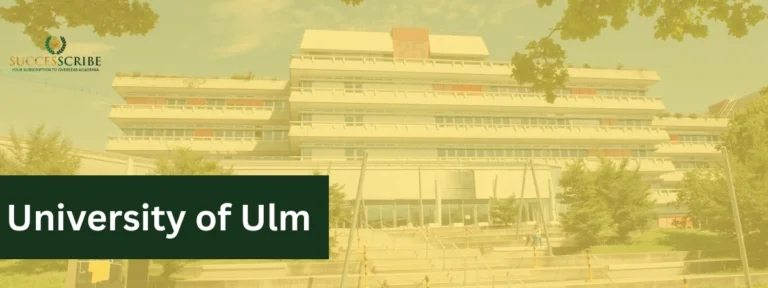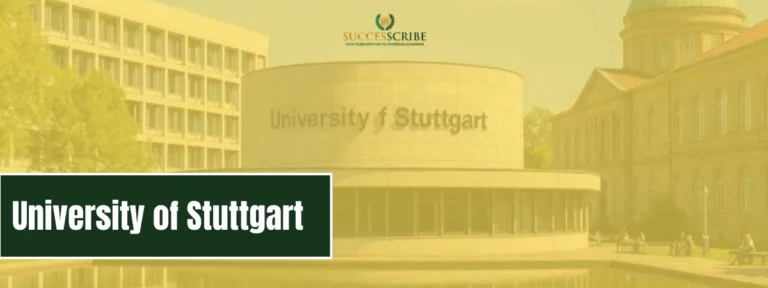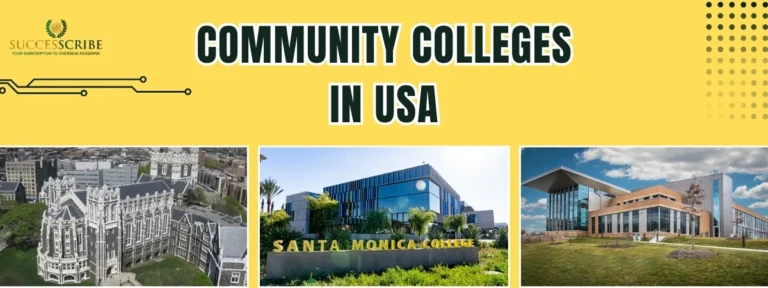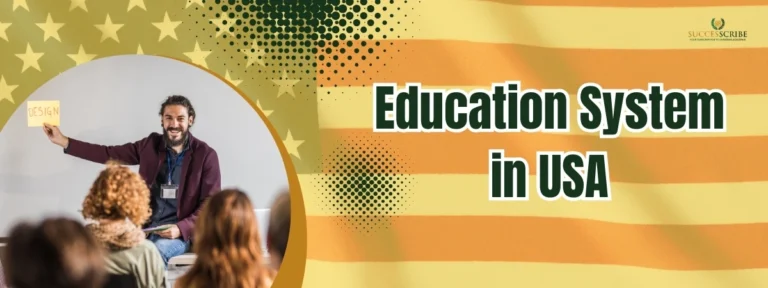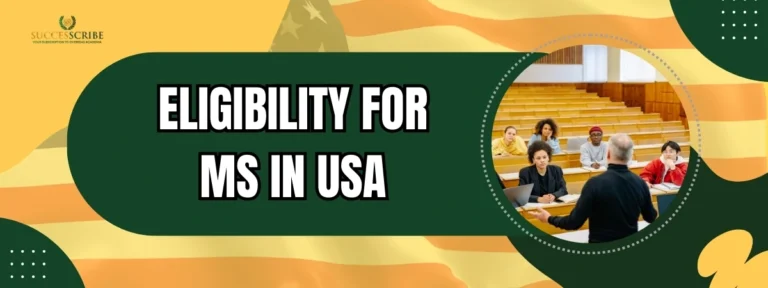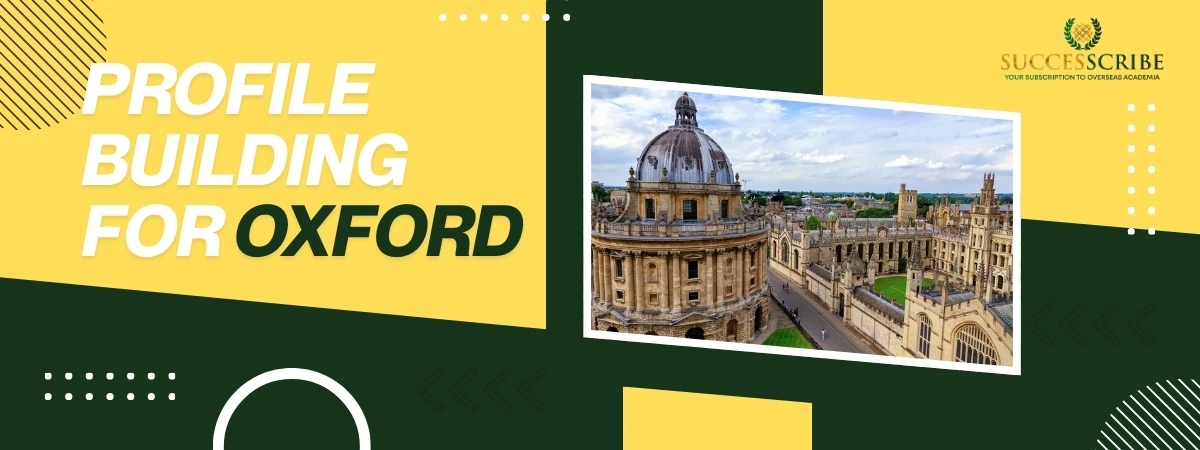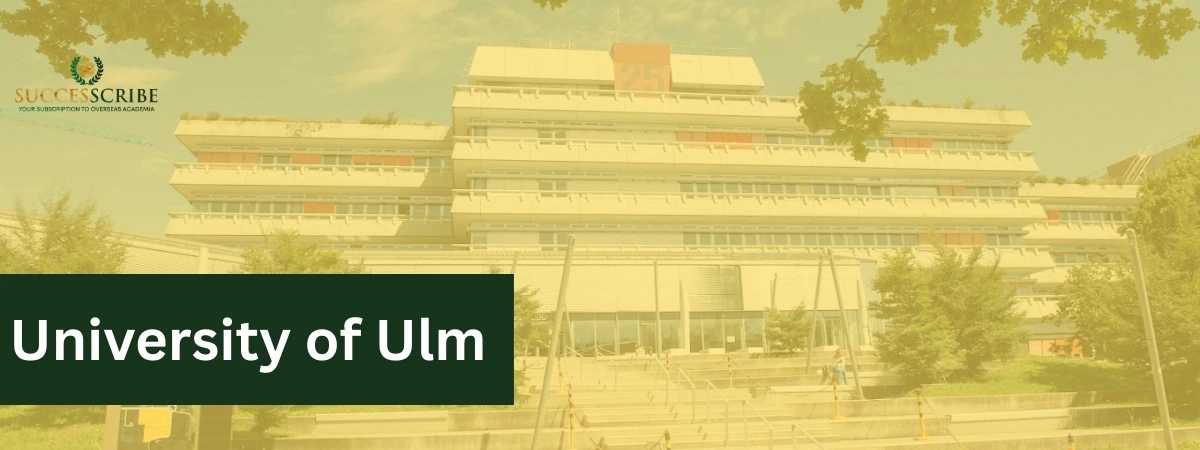A Master’s in Psychology in the United States is a postgraduate degree that provides advanced knowledge in psychological theory, research methods, and applied psychology practices. Whether you want to work in clinical settings, research, counseling, organizational behavior, or forensic psychology, a Master’s degree serves as a gateway to specialized careers. The USA remains a preferred destination for many international students because of its globally reputed universities, diverse specialization options, cutting-edge research infrastructure, and relatively better career prospects. With rising nationwide demand for mental health professionals, pursuing a Masters in Psychology in USA provides strong career mobility and long-term growth prospects.
Key Highlights – Masters in Psychology in USA
- Why Study a Master’s in Psychology in USA
- Types of Master’s in Psychology in USA
- Top Universities for Master’s Programs in Psychology in USA
- Admission Requirements for Master’s in Psychology in USA
- Cost of Studying Master’s in Psychology in USA
- Scope of Master’s in Psychology in USA for International Students
- The Masters-to-Doctoral Pipeline: Strategic Considerations
- Jobs & Salaries After Master’s in Psychology in USA
- How to Apply for Master’s in Psychology in USA – Step by Step (International Student’s Guide)
- Conclusion
- FAQs
Why Study a Master’s in Psychology in USA
There are several compelling reasons to choose the USA for a Master’s in Psychology.
- Wide availability of programs: The US offers a large number of universities granting MS/MA in Psychology. According to recent data, there are approximately 110 colleges in the USA offering master’s in psychology programs.
- Diverse and specialized tracks: The breadth of specializations – from clinical, counseling, forensic, industrial-organizational to neuropsychology- ensures students can find a niche aligned with their interests.
- Strong job demand and growth: The demand for psychologists and mental health professionals in the USA is rising. Many sectors – healthcare, education, corporate organizations, criminal justice, research- regularly need trained graduates.
- Attractive earning potential: For many graduates, a Master’s in Psychology translates into respectable starting salaries, with scope for growth as experience accumulates or if they specialize.
- Research opportunities & academic rigor: US universities provide robust research infrastructure, opportunities to work in labs, undertake thesis or capstone projects, and engage with cutting-edge psychological research.
- Global recognition & mobility: A degree from a US university carries weight globally – beneficial for further studies (e.g. PhD/PsyD), international career moves, or if returning to one’s home country for practice.
Want to Study in Europe?
Start your journey with Successcribe’s free expert guidance
Book a Free Session NowTypes of Master’s in Psychology in USA
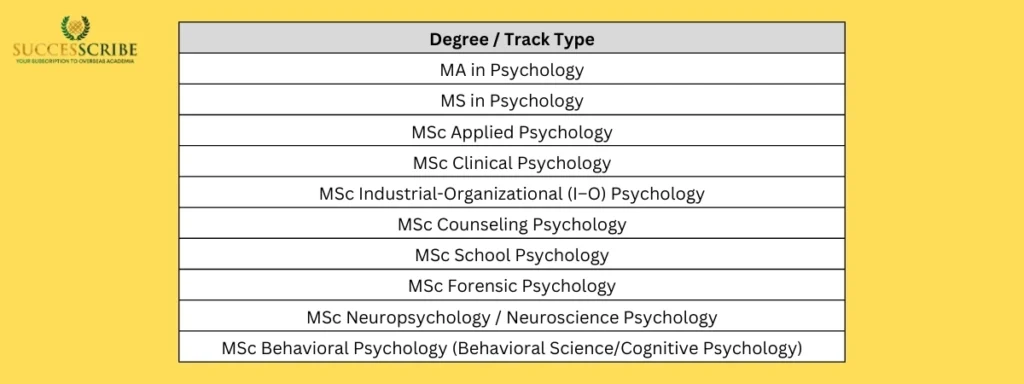
One of the strengths of pursuing psychology graduate studies in the USA is the variety of specialized Master’s degrees and tracks. Here is a breakdown of common types, and what they typically mean:
| Degree / Track Type | What It Means / Focus |
| MA in Psychology | More theoretical/academic; often covers general psychology, development, cognition, may lean towards research. |
| MS in Psychology | Often research-based or STEM-oriented; may involve statistics, lab work, quantitative methods. |
| MSc Applied Psychology | Focused on applying psychological principles in real-world settings – e.g. counseling, community work, organizational behavior. |
| MSc Clinical Psychology | Emphasis on clinical assessment, therapy, mental health, psychopathology – prepping for clinical roles or further licensure (PhD/PsyD). |
| MSc Industrial-Organizational (I–O) Psychology | Applies psychology to workplaces – human behavior at work, HR, organizational development, performance management. |
| MSc Counseling Psychology | Counseling-focused; training in therapy, counseling methods, client interactions, and mental health support. |
| MSc School Psychology | Focus on psychological services in educational settings – child development, assessment, school-based counseling. |
| MSc Forensic Psychology | Intersection of psychology and criminal justice – profiling, criminal behaviour analysis, legal/forensic settings. |
| MSc Neuropsychology / Neuroscience Psychology | Focus on brain-behaviour relationships, neurological aspects, brain disorders, research in neuroscience and cognition. |
| MSc Behavioral Psychology (Behavioral Science/Cognitive Psychology) | Emphasis on behavior analysis, cognition, human behavior, often research-heavy, can tie into various applied areas. |
Each track offers different learning paths, skill sets, and eventual career outcomes – from therapy and counseling, research and academics, to organizational roles.
Top Universities for Master’s Programs in Psychology in USA
Many high-ranking institutions offering a Masters in Psychology in USA also provide dedicated mentorship and academic support for international students.
| Institution | Primary Master’s Program Type(s) | Key Specialization Strength | Program Focus |
| University of Michigan – Ann Arbor | MS | Experimental/Research | Highly selective, quantitative focus, excellent Ph.D. placement. |
| Columbia University (Teachers College) | MA, Ed.M. | Counseling, Social-Organizational | Strong urban clinical network; unique blend of applied social and organizational psychology. |
| New York University (NYU) | MA, MS | Industrial-Organizational, Counseling | Strong industry/corporate ties (I-O); robust clinical training in NYC. |
| Northwestern University | MA, MS | Clinical Counseling, Mental Health | Strong clinical reputation in the Midwest; specialized tracks in counseling. |
| University of Wisconsin-Madison (UW-Madison) | MS | Experimental/General | Research-focused, excellent Ph.D. feeder, ample faculty research funding. |
| San Diego State University (SDSU) | MS, Ed.S. | School Psychology, Applied Behavioral | High focus on state licensure/certification for public practice in California. |
| University of Central Florida (UCF) | MS | Industrial-Organizational (I-O) | Highly regarded, large I-O program known for its applied focus and placement. |
| Boston College | MA | Counseling, Mental Health | Strong focus on clinical training, ethics, and community health. |
| University of North Carolina – Chapel Hill | MA, MS | Experimental, Developmental | Flagship public research institution with strong research Master’s tracks. |
| Loyola University Chicago | MA | Clinical Counseling, School Counseling | Strong focus on clinical placements and MPCAC accreditation in an urban setting. |
Apply to Top European Universities
Make your application simple and stress-free with Successcribe
Get Expert Help NowAdmission Requirements for Master’s in Psychology in USA
To secure admission into a reputed Masters in Psychology in USA program, applicants must demonstrate academic readiness, research aptitude, and interpersonal skills. Admissions requirements vary by university and program, but the following are typical for many MS/MA Psychology programs:
- Bachelor’s Degree: A 4-year bachelor’s in psychology or related discipline; some programs may accept other backgrounds.
- GPA Requirement: Many programs expect a minimum GPA (often 3.0 / 4.0 or higher), though for competitive institutions the requirement may be more stringent (e.g. 3.2+).
- GRE Requirement: Some programs ask for GRE (Graduate Record Examination) scores; others have waived it (depending on trend). Always check individual program details.
| Program Tier | Verbal Reasoning | Quantitative Reasoning | Combined Score | Analytical Writing |
| Highly Competitive | 160-170 | 155-165 | 315-330 | 4.5-6.0 |
| Competitive | 153-159 | 148-154 | 301-314 | 4.0-4.5 |
| Moderately Competitive | 145-152 | 140-147 | 285-300 | 3.5-4.0 |
| Less Competitive | 140-144 | 135-139 | 275-284 | 3.0-3.5 |
- Statement of Purpose (SOP) / Personal Statement: Explaining motivation, background, research interests, career goals.
- Letters of Recommendation (LORs): Usually 2–3 academic or professional recommendations.
- Resume / Curriculum Vitae: Highlighting relevant academic coursework, research, volunteer/work experience.
- Transcripts: Official transcripts of all previous academic work.
- Possibly: Interview / Portfolio / Writing Sample: Depending on specialization (especially clinical, counseling, or forensic tracks).
Because criteria vary widely – from liberal to strict – it’s important to check each university’s official website for the most current admission requirements.
Cost of Studying Master’s in Psychology in USA
Studying in the USA involves multiple cost components – tuition, living expenses, health insurance, and miscellaneous costs. Below is a general breakdown (estimates) to help you plan.
| Expense Type | Typical Range / Estimate (USD per year) |
| Tuition Fees | USD 30,000 – USD 60,000 (common range) |
| Living Costs (housing, food, utilities) | USD 10,000 – USD 20,000 per year (varies by location) |
| Additional Fees (health, student services, technology, etc.) | USD 2,000 – USD 3,000 per year (on average) |
| Books, Course Materials, Supplies | Variable; modest compared to tuition — often a few hundred to 1,000 USD per year depending on program. |
| Overall Estimated Cost (Total) | USD 40,000 – USD 70,000 per year (tuition + living + other expenses) |
Important Notes:
- Private universities tend to be on the higher end of tuition.
- Cost of living differs drastically depending on city and state (metropolitan areas are more expensive).
- International students may also need to budget for visa costs, health insurance, and travel.
- Many students rely on scholarships, assistantships, or part-time work (on-campus, subject to visa regulations) – but this depends on university policies and visa status.
Because of these costs, prospective students should carefully budget before applying.
Scope of Master’s in Psychology in USA for International Students
If you are an international student (for example, from India) looking at a Master’s in Psychology in the USA, here’s how the scope and opportunities shape up:
- Global Qualification & Recognition: A U.S. master’s degree is widely recognized – beneficial for global mobility, whether you plan to return home or seek opportunities abroad.
- Diverse Career Paths: With specializations like clinical, counseling, organizational, forensic, and neuropsychology, you have flexibility to choose from mental health, corporate, education, research, forensic, or NGO sectors.
- Potential for Further Studies: Many students use their Master’s as a stepping stone to doctoral-level programs (PhD or PsyD), increased research opportunities, or clinical licensure, especially if they aim to become licensed psychologists.
- Availability of Scholarships & Assistantships: While cost is high, financial aid in the form of scholarships, research/teaching assistantships, or merit-based grants (e.g. from scholarships like those at Columbia, Michigan, or via external grants such as Fulbright) help reduce financial burden.
- International Student-Friendly Universities: Many US universities explicitly support international applicants, offering resources for visa guidance, comparatively flexible admissions (for those without psychology background — in some cases), and support for living/study.
- Research & Practical Experience: Opportunities to work in labs, clinical placements, internships, or community outreach – giving international students exposure to real-world psychological work in the US context.
The Masters-to-Doctoral Pipeline: Strategic Considerations
For many applicants, the Master’s degree is a “retooling” stage – a necessary step to improve their credentials for a Ph.D. or Psy.D. application, especially if their undergraduate GPA or research experience was insufficient.
MA/MS as a Ph.D. Launchpad
- Statistics: Students who complete a research-intensive Master’s degree and secure a publication are disproportionately successful in Ph.D. admissions. The Ph.D. admissions committee sees a Master’s graduate as a lower-risk investment because they have already proven their ability to handle graduate-level research and complete a thesis.
- Funding Impact: Many Master’s programs offer paid research opportunities that mirror the Ph.D. structure, giving students a taste of academic life and essential funding. The ability to articulate a specific, publishable research agenda, honed during the Master’s thesis, is invaluable in Ph.D. interviews.
Ph.D. vs. Psy.D. vs. Terminal Master’s
| Degree Type | Primary Goal | Funding Model | Time to Completion (Post-Bachelors) |
| Ph.D. (Doctor of Philosophy) | Research & Academia | Fully Funded (Stipend + Tuition Waiver) | 5 to 7 years |
| Psy.D. (Doctor of Psychology) | High-Level Clinical Practice | Usually Self-Funded (Expensive) | 4 to 6 years |
| MA/MS (Masters) | Clinical Licensure or I-O/Data Career | Self-Funded (Some Assistantships) | 2 to 3 years |
It is crucial to note that if your goal is Ph.D., attending a program with a strong research-focused Master of Science (MS) track that has a history of placing graduates in top Ph.D. programs is the most strategic move.
Jobs & Salaries After Master’s in Psychology in USA

A Master’s in Psychology can open up multiple career paths. However, salary and growth depend heavily on specialization, state, employer, and whether you pursue licensure or further education. Below is a representative table summarizing job roles, median/average salaries, and growth outlook for psychology-related careers according to recent data from agencies such as the U.S. Bureau of Labor Statistics (BLS) and research reports.
| Job Role / Title | Approximate Average / Median Salary (USD per year) | Projected Growth / Demand / Notes |
| Licensed / Clinical Psychologist / Mental Health Clinician | USD 65,000 to USD 80,000 (entry to mid-level) | Demand rising due to increasing mental health awareness; good scope in urban & educational settings. |
| Industrial-Organizational Psychologist / HR / Organizational Consultant / HR Specialist | USD 70,000–USD 95,000+ (depending on role & experience) | Organizations seeking workplace performance, employee well-being, are increasingly hiring such professionals. |
| School / Educational Psychologist / Counselor | USD 60,000–USD 75,000 (varies by state, public vs private) | Schools and educational institutions often need counselors and psychologists – stable demand. |
| Forensic / Criminal-Justice Related Psychologist / Counselor / Forensic Consultant | USD 60,000–USD 85,000+ (varies widely) – depending on agency, experience, specialization | Niche field; demand present in correctional facilities, forensic centers, legal settings, NGO / social work. |
Salary outcomes for those completing a Masters in Psychology in USA range between USD 60,000–100,000 depending on specialization and location.
How to Apply for Master’s in Psychology in USA – Step by Step (International Student’s Guide)
Here’s a typical roadmap for applying to Master’s in Psychology programs in the U.S.
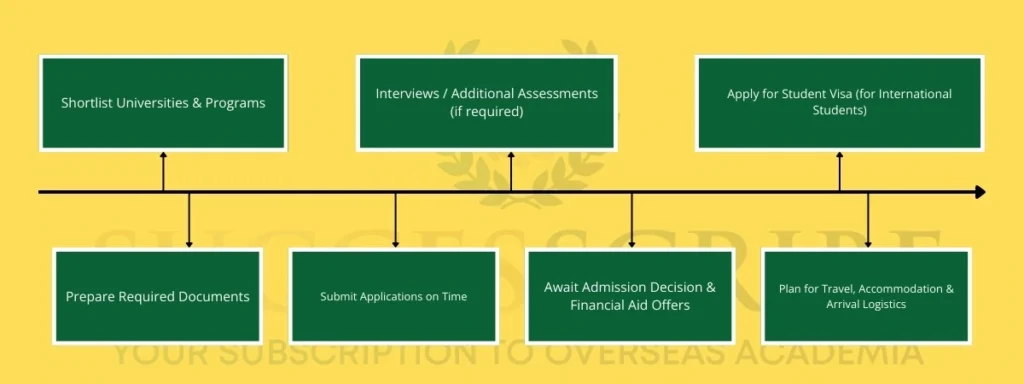
1. Shortlist Universities & Programs
- Based on your specialization interest (clinical, I-O, counseling, forensic, neuropsychology, etc.).
- Based on tuition/fees budget, living costs, location (urban/rural), and scholarship/assistantship availability.
- Check program-specific requirements (some require prior psychology background; some may accept other disciplines).
2. Prepare Required Documents
- Academic transcripts from your bachelor’s degree; if not in psychology, also any relevant coursework or experience.
- English proficiency scores (TOEFL/IELTS) if applicable.
- GRE, if required by the program (some waive it).
- Statement of Purpose (SOP) / Personal Statement — highlighting motivation, research interests, goals.
- Letters of Recommendation (preferably academic or from professionals).
- Resume/CV showing relevant work/research/volunteer experience.
- Additional materials if needed (writing samples, portfolios, clinical/research experience, etc.).
3. Submit Applications on Time
- Be mindful of application deadlines (which vary by university and program).
- Pay application fees.
- Ensure all documents are uploaded/verified properly.
4. Interviews / Additional Assessments (if required)
- Some programs especially clinical / counseling / forensic may conduct interviews, assessments, or require a writing sample.
5. Await Admission Decision & Financial Aid Offers
- Universities may offer scholarships, assistantships, or financial aid – evaluate these carefully.
6. Apply for Student Visa (for International Students)
- Once admitted, international students must complete visa formalities to begin their Masters in Psychology in USA on time (e.g. F-1) and complete associated formalities (e.g. SEVIS).
7. Plan for Travel, Accommodation & Arrival Logistics
- Arrange housing (on-campus or off-campus), health insurance, and plan for initial costs (living, books, transport, etc.).
- Familiarize yourself with university orientation, course registration, and local regulations.
This step-by-step guide aims to simplify the application process for international aspirants.
Conclusion
Pursuing a Masters in Psychology in USA for 2026 represents an investment in a meaningful career helping individuals, organizations, and communities address psychological challenges and optimize wellbeing. With approximately 1,241 universities offering psychology master’s programs, students enjoy unprecedented choice in finding programs matching their specialization interests, financial parameters, and career aspirations. The field’s strong growth trajectory – with some specializations projecting 22% employment growth through 2031 – combined with competitive salaries ranging from $59,000 to $139,000 depending on specialization, makes psychology an attractive graduate education choice.
FAQs
Is a Master’s in Psychology worth it in the USA?
Yes. In 2026, psychology-related careers in the USA are growing at 6–14%, faster than the national average. Graduates also earn between $55,000–$120,000 depending on specialization, making the degree highly valuable.
What is the duration of a Masters in Psychology in USA?
Most programs take 2 years to complete. Some accelerated programs can be finished in 12–18 months.
Do I need a GRE for admission?
Not always. Around 70% of U.S. universities no longer require the GRE for Psychology programs in 2025–26. Top universities like NYU, Columbia, and UCLA offer GRE-waived admissions.
Is Masters in Psychology STEM or non-STEM in the USA?
Most psychology master’s programs are non-STEM, except specialized fields like:
1. Cognitive Neuroscience
2. Behavioral Science
3. Neuropsychology
These may qualify for STEM OPT extension.
Can Indian students apply for Master’s in Psychology in the USA?
Absolutely. The USA is one of the top destinations for Indian psychology students. Over 12,000+ Indian students apply each year for psychology programs.
Related Post
Masters in physiotherapy in USA
Masters in project management in USA
Masters in health informatics in USA
Masters in health administration in USA

